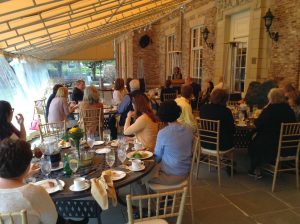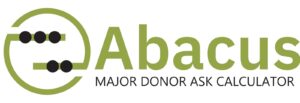Before each Master Gift Officer Training (PLAN-MGO) over the past seven years, we ask each attendee to complete an 18 question self-evaluation. Each group has been distinct, with different strengths and challenges. Students of all sessions were comprised of major gift officers, executive directors, annual and planned giving officers and trustees from more than 100 organizations, large and small, prestigious and obscure, representing most nonprofit sectors. The self-evaluation helped my partner in PLAN-MGO, Diane Blumenson and I to emphasize those areas in which the particular group rated themselves as needing special attention.
The following is a review of self-evaluations completed since 2009 by 171 PLAN-MGO attendees. These results provide insight into what topics would be potentially more valued for future training programs by Copley Raff, professional conferences and others, so the needs of our colleagues can be directly addressed.
|
Initiate new relationships with prospects, establishing rapport easily and quickly.
|
3.6
|
|
Maintain regular contact and provide engagement opportunities for your prospects.
|
3.5
|
|
Identify prospects who have the capacity and inclination to give a major gift to your cause.
|
3.4
|
|
Steward the donor, inspiring continual commitment and engagement with the institution.
|
3.4
|
|
Develop and articulate a compelling Case for Support (in writing and oral presentation).
|
3.3
|
|
Use a data management system to store prospect information and document progress through all stages of the relationship with your prospects.
|
3.3
|
|
Rate prospects in categories of giving potential to prioritize your time and effort.
|
3.2
|
|
Understand the key elements of successful campaigns.
|
3.1
|
|
Develop and customize the gift proposal.
|
3.0
|
|
Work with leadership volunteers to enhance their relationship with the institution while you provide coaching, instruction, and partnering to achieve specified goals.
|
2.8
|
|
Engage volunteer leadership in prospect identification, cultivation, and solicitation activities.
|
2.8
|
|
Determine the prospect’s readiness to be asked.
|
2.8
|
|
Establish receptivity, set the tone and comfortably deliver the ask.
|
2.8
|
|
Design and implement a strategic plan for each phase of your relationship with a prospect, including discovery, cultivation, solicitation and stewardship
|
2.7
|
|
Create and implement a structured process to identify, recruit, evaluate, recognize, and replace volunteers.
|
2.7
|
|
Address the response to the ask and close the gift.
|
2.7
|
|
Measure your success as a Major Gift Officer.
|
2.6
|
|
Understand and utilize gift planning to help donors align their missions with your organization’s mission.
|
2.5
|
These responses to point to the strengths these advancement officers have in identifying and nurturing relations but have challenges converting relationships into gifts for their organizations. There also appears to be trepidation working with leadership volunteers and with developing advancement systems and plans.
It is not surprising to see that many students see themselves as relationship builders, but needed help and insight into converting relationships into philanthropic support. It is also not surprising to see that many of the students have less strength in systems design and use, and the technical details of planned and estate giving, since they are “people” people.
PLAN-MGO is designed to help skilled gift officers identify those innate qualities of successful fundraisers, as well as their own brilliance, and employ them intentionally to rapidly build authentic relationships and “convert” them into philanthropic support for the organization.
The first step in self-improvement – professionally and personally – is to understand one’s strengths and areas for improvement. At least for a professional exercise, address the questions above for yourself and get a sense of areas to further improve and for concentration of effort.
Your takes:
1. Know thy self.
2. Seek mentors, training and reading to improve yourself.
3. Never stop learning.
For more information about Copley Raff and its spectrum of consulting services, please see www.copleyraff.com. Follow CRI on Twitter @copleyraff. For those in healthcare visit www.acophilanthropy.com.


